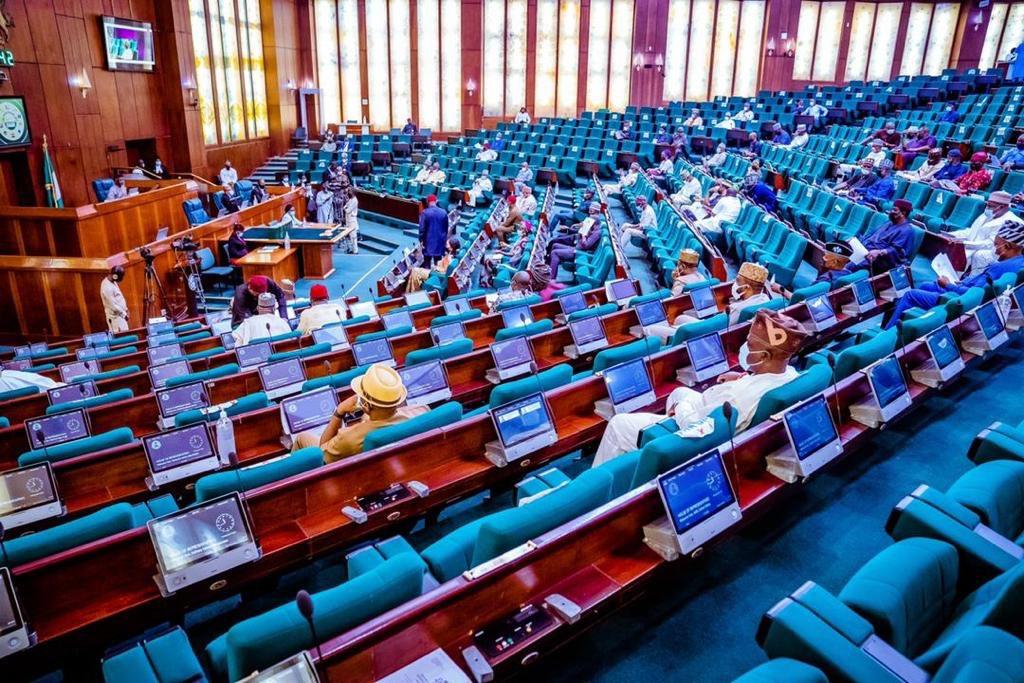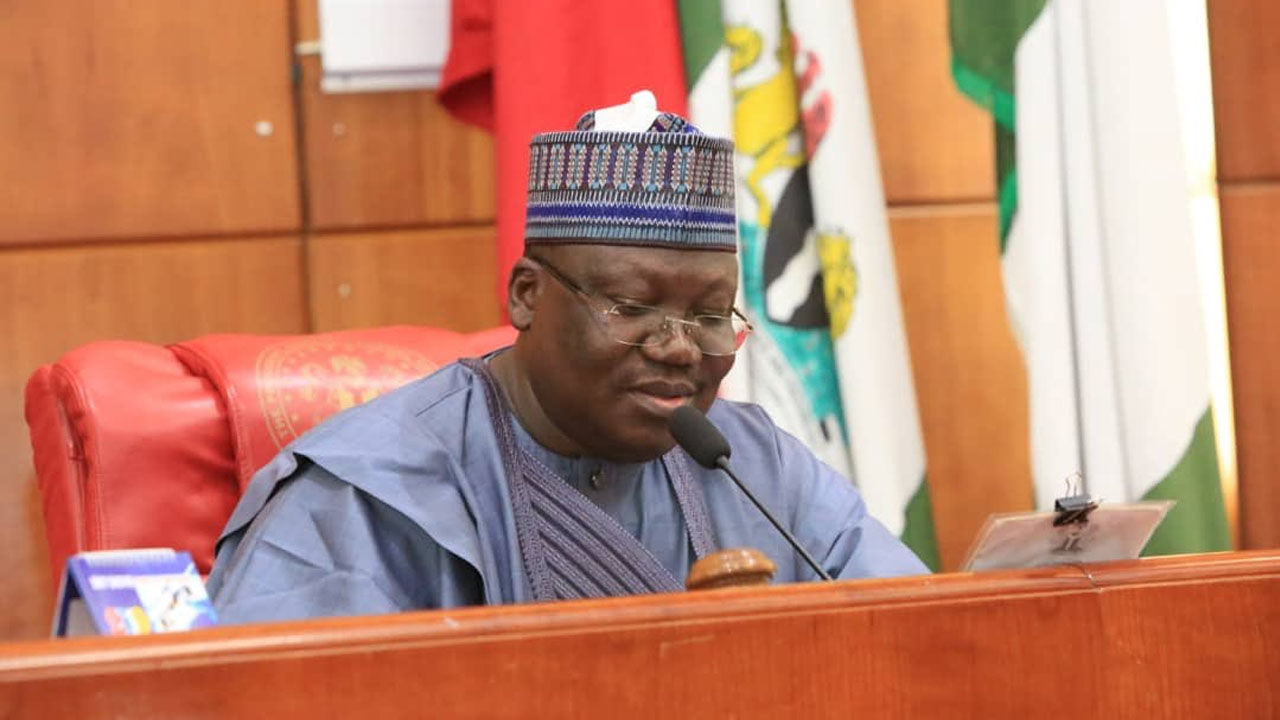
The House of Representatives Ad-hoc Committee investigating the National Hajj Commission of Nigeria (NAHCON) and the FCT Muslim Pilgrims Board over the 2024 Hajj exercise has protested against the allocation of 50 per cent airlift of Nigerian pilgrims to Saudi Arabian airlines.
The panel called on the Federal Government to review the allocation, describing the arrangement as a modern form of colonisation.
Chairman of the committee, Rep. Sada Soli, who made the call during the resumption of the hearing that went into late Wednesday night, queried the rationale behind allocating 50 per cent of Nigeria’s pilgrims to foreign airlines.
“Why do we have to give 50 per cent of our pilgrims to a foreign airline? Why do we have foreign airlines airlift our pilgrims?” Soli asked.
Recall that the Federal Government signed a pact in 2010 with Saudi Arabia that 50 per cent of Hajj passengers would be carried by a Saudi Arabian airline, Flynas.
Prior to that time, the Saudi Government collected royalties in lieu of this right but began to demand an implementation of this right after Nigeria suspended the payment of royalty.
The Bilateral Air Service Agreement (BASA) between the Nigerian government and Saudi Arabia was that Saudi airlines would airlift pilgrims starting with 25 per cent in 2015; 35 per cent in 2016; 45 percent in 2017 and 50 per cent in 2018.
The BASA was reportedly signed in 2015 at a meeting held in Jeddah.
The agreement is however still being implemented by the Federal Government.
Soli who argued that Nigeria can airlift its pilgrims, emphasised the need for the Government and NAHCON to prioritize Nigerian interests and support local airlines.
He said: “For instance, Air Peace has never been involved in lifting pilgrims, but they have tried and demonstrated readiness and willingness to come on board.
“If you don’t encourage them, they will just get out of this business. They don’t have to rely on the seasonal lifting of pilgrims. And then you will be stuck by relying on foreign airlines.
“I know that Flynas does not go to some airports in this country. There was a time they abandoned Jigawa. They don’t go to Bauchi. They are the ones to choose which airports in the country to go to and you allow them.
“These are some of the issues that we must be patriotic to defend the interest of this country. I don’t care about whoever will be involved. But let us look at the country first.
The lawmaker advised NAHCON to provide opportunities for local airlines who have the financial capacity to bring in aircraft and handle the hajj operations to come on board.
Responding, Commissioner of Operations, NAHCON, Prince Olarewaju Elegushi, explained that the allocation of pilgrims to Saudi airlines was based on instructions from the Ministry of Foreign Affairs and the Ministry of Aviation.
“We rely on the instructions of the Ministry of Aviation and the Ministry of Foreign Affairs. Nigeria can build the capacity to allow our local airlines to do the job,” he said.
Explaining the criteria used to allocate pilgrims to airlines, Elegushi noted that the capacity of airlines was a major consideration in allocating pilgrims.
According to him, when considering capacity, the commission looks for airlines with a capacity to ferry about 350 to 500 pilgrims.
He cited the example of Air Peace, which he said deployed an aircraft with less than 400 capacity during the 2024 hajj exercise.
Elegushi explained that this capacity issue led to complaints from FCT and Kwara pilgrims board “because Air Peace did not have the capacity to handle their large number of pilgrims.”
He, however, acknowledged that Air Peace should not have been assigned to FCT and Kwara due to their large numbers.
“In 2024, we allocated Air Peace to FCT and Kwara, but they are complaining now because of the capacity of Air Peace to take that large number of pilgrims. It depends on the capacity. The most important thing about those criteria is the technical and safety aspect of it,” he said.
But Soli insisted that local airlines must be supported and considered first in hajj airlift arrangements.
“I’m not saying that you don’t have difficulties. Yes, the foreign affairs and the Ministry of Aviation will tell you what to do. But you are there to guide them. I don’t buy the idea that we have to stick to Flynas.”
However, Elegushi insisted that NAHCON does not have a say on the matter.
His words: “We’re being directed. If the Ministry of Foreign Affairs or the Ministry of Aviation writes to us today and asks us to our discretion, we know what to do. But if they’re still telling us that a particular BASA agreement exists, who are we to say no? That’s the problem.
“Let them write to us to confirm that there’s no BASA agreement that gives 50 per cent of our pilgrims to Saudi airlines. We even argued about this in 2024 and refused to give them 50 per cent . In the end, we allocated 40 per cent to them. If you check the figures, you’ll see that we refused to give them 50 per cent .”
Elegushi also called for the elimination of dollar components in payment of Hajj fare tickets, saying it is responsible for increased in hajj fare.
A retired Director of Air Transport Regulation (DATR) at the Nigerian Civil Aviation Authority (NCAA), Alhaji Olaniyi Saruku recalled that the 50 per cent sharing formula started as a joke in 2010.
While calling for such arrangements to be discarded, Saruku maintained that the MOU between Nigeria and Saudi is no longer binding.
Secretary of the Forum of Chief Executive Officers of State Pilgrims Welfare Board Agencies and Commissions, Abubakar Salihu, while commending NAHCON for improving the organization of the 2024 Hajj exercise despite some shortcomings, described the 50 per cent allocation to foreign airlines as an international weapon to coerce the weak by the strong or advantaged”.
Salihu, who is also the Executive Secretary Adamawa State Muslim Pilgrims Welfare Commission, accused NAHCON of not involving State Pilgrims’ Welfare Boards in the BASA agreement that gave Saudi airlines right to ferry between “35 per cent to 50 per cent of our pilgrims”
“We have no say on this. It was like a fiat. Nigeria is a sovereign state, and no nation can impose its airline on it on the pretense of pilgrimage”, he stated.
He added: “Airline business is business and should not be turned into an international weapon of coercing the weak by the strong or advantaged. This is not in line with international diplomacy and conventions.
“So we insist that while we are not averse to NAHCON or any other agency of the aviation industry screening airlines or doing whatever, we should be the ones to choose the airline. We should be part of the process because the money belongs to the pilgrims and we are the one who owns the pilgrims.”
Salihu also criticized NAHCON for hiring hotels and feeding pilgrims in Medina, stating that it was not part of their mandate.
“Section 4 (1A) of the NAHCON Act says NAHCON shall license, regulate, supervise, and perform oversight functions. The section does not permit the Commission to go and be an operator of Hajj, where it will now go and hire hotels in Medina, feed pilgrims in Medina, and do such other activities that are purely operational activities,” he said.
But Elegushi insisted that it was within the purview of the commission to perform such function obligation.
Aligning to NAHCON’s position, Soli observed that the NAHCON act gave the commission the mandate to hire accommodation for pilgrims, adding that the commission could delegate such duty if it so wishes.






